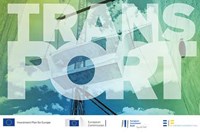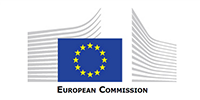
The European Commission is launching a new and innovative way to finance transport infrastructure projects in Europe. The call for proposals will seek to combine €1 billion of grants (Connecting Europe Facility - Transport) with financing from public financial institutions, the private sector or, for the first time, the European Fund for Strategic Investments, the heart of the Investment Plan for Europe and a top priority for the Juncker Commission.
This first ever combination of funds will help to achieve the twin objectives of boosting investment to fund innovative, sustainable transport infrastructure upgrades while supporting jobs needed to put that infrastructure in place. The call contributes to the implementation of the Commission's Strategy for Low-Emission Mobility under the Energy Union, and also supports investments in "sustainable transport" in view of the upcoming road mobility initiatives to be launched later in the year.
Commission Vice-President responsible for the Energy Union Maroš Šefčovič said: "The mobility of the future must be clean, connected and competitive, and requires new ways of financing. Today's call for proposal is an important first step in this regard. We will build on it, this year, in our work to implement the Low-Emission Mobility Strategy for Europe."
Commission Vice President responsible for Jobs, Growth, investment and Competitiveness Jyrki Katainen said: "The European Fund for Strategic Investments was designed as a flexible tool to be used in combination with other EU funding sources so as to maximise their impact and help achieve Europe's broader policy objectives. I am delighted that, with today's initiative, the EFSI will complement the Connecting Europe Facility to help support the investment and jobs needed to build smart, sustainable transport networks."
Commissioner for Transport Violeta Bulc added: "Achieving our vision for seamless, intelligent and sustainable mobility in Europe requires investments that public funds alone cannot provide. That is why we are launching an innovative solution to make the best of our resources, and unlock untapped private investments, with particular focus on Cohesion countries. Today's action is a sign of solidarity on the move."
For the first time, this call for proposals of the Connecting Europe Facility (CEF) will require the combination of grants with financing from the European Fund for Strategic Investments (EFSI), the European Investment Bank, National Promotional Banks or private sector investors. In order to receive Connecting Europe Facility support, applicants will be asked to show evidence of the projects' financial readiness to obtain complementary funding from public or private financing institutions.
Selected projects must contribute to sustainable, innovative and seamless transportation along the Trans-European Transport Network. Particular emphasis will be placed on projects removing bottlenecks, supporting cross-border links and accelerating the digitalisation of transport, especially in areas with higher potential and market gaps such as in Cohesion countries, sustainable and efficient transport systems, and enhancing inter-modality and inter-operability in the transport network. This includes new technologies and traffic management systems such as the European Railway Traffic Management System, Intelligent Transport Systems for roads or the Single European Sky Air Traffic Management Research Programme.
Support will be granted on a competitive basis, following a thorough evaluation and selection process. The call will have two deadlines for submission of proposals, the first one on 14 July 2017and the second one on 30 November 2017.
About The European Comission
The aim of the Commission is to promote a mobility that is efficient, safe, secure and environmentally friendly and to create the conditions for a competitive industry generating growth and jobs. The issues and challenges connected to this require action at European or even international level; no national government can address them successfully alone. The European Commission’s Directorate-General for Mobility and Transport works in concert with the European Union Member States, European industry, citizens and stakeholders.




Comments
There are no comments yet for this item
Join the discussion